The year 2024 was a landmark for the JRPG genre, with highly anticipated releases such as Final Fantasy VII Rebirth, Persona 3 Reload and Like a Dragon: Infinite Wealth, which further cemented the Yakuza series in the genre. With so many heavyweight titles, it seemed unlikely that another game would take the crown of Best JRPG of the year. However, Atlus managed to surprise with Metaphor: ReFantazio.
Developed by the same creators of the Persona series, Metaphor represents an evolution of the mechanics and aesthetics characteristic of Atlus games, but now set in a medieval high fantasy setting. For their debut in this new theme, director Katsura Hashino and his team delivered one of the studio's most elaborate games, which quickly became a must-play of this generation.
Although it can be considered a “Fantasy Persona”, Metaphor does not limit itself to replicating elements of the franchise. It takes everything that made Persona 5 one of the most acclaimed JRPGs of the past generation, transports it to a world far from big cities, and seeks to improve its flaws, while also innovating, especially in the Archetypes system. The game stands out for its character customization and the optimization of the use of “free time” between activities, bringing a clear evolution in design.
Below, you can check out my spoiler-free review, which covers technical aspects of the work. Soon, we will publish an article focused on the narrative, exploring the main themes and how they connect with the concepts inherited from the Persona series, where we will discuss the plot spoilers in detail.
Technical Details
Developer: Atlus, Studio Zero
Platforms: PlayStation 5, PlayStation 4, Xbox Series, PC
Genre: RPG
Release: October 11, 2024
Fantasy with Persona or Persona with Fantasy?
From the moment we press the "New Game" button, Metaphor awakens two distinct feelings: it is very similar to Persona, but at the same time, clearly different. The initial premise illustrates this duality well: while Persona inserts real-world themes into fantasy, Metaphor brings an idealization of reality to the universe of fiction.
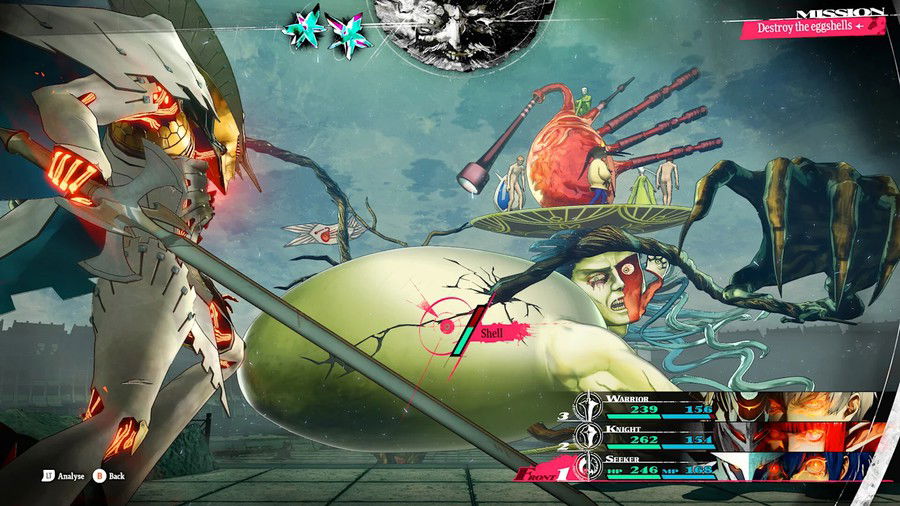
In terms of gameplay, Metaphor draws heavily from what Persona solidified. The combat system maintains the "rock-paper-scissors" essence between elements and attack types, which expand or reduce the possible actions before the opponent's turn. However, there are new layers of complexity, such as the division of physical attacks into Slash, Pierce and Strike, in addition to how different protections alter the sequence of turns.
The game also draws a lot of inspiration from Persona in the narrative aspects. Its characters, mostly young, face dilemmas that lead to the awakening of hidden powers, represented by Archetypes, personifications of the heroes' virtues. Concepts like the collective unconscious and the masses’ ability to shape reality, common to the Persona series, are translated into the context of a medieval fantasy.
This strong influence presents a challenge: while Metaphor tries to improve on what Atlus did with its previous games and establish itself as something unique, in some ways it absorbs so much of its predecessor’s ideas that it struggles to find its own identity. While it manages to differentiate itself in certain ways, the game sometimes feels stuck between “almost a Persona spin-off” and “a new Atlus title,” resulting in a middle ground that prevents the game from standing out as something completely original.
Archetypes are the best choice for the future of Atlus games
If Persona has anything to learn from Metaphor, it’s in combat. The Archetype system is one of the most flexible customization elements in recent JRPGs, even though it doesn't bring innovations that haven't already been explored in games like Final Fantasy or Like a Dragon.
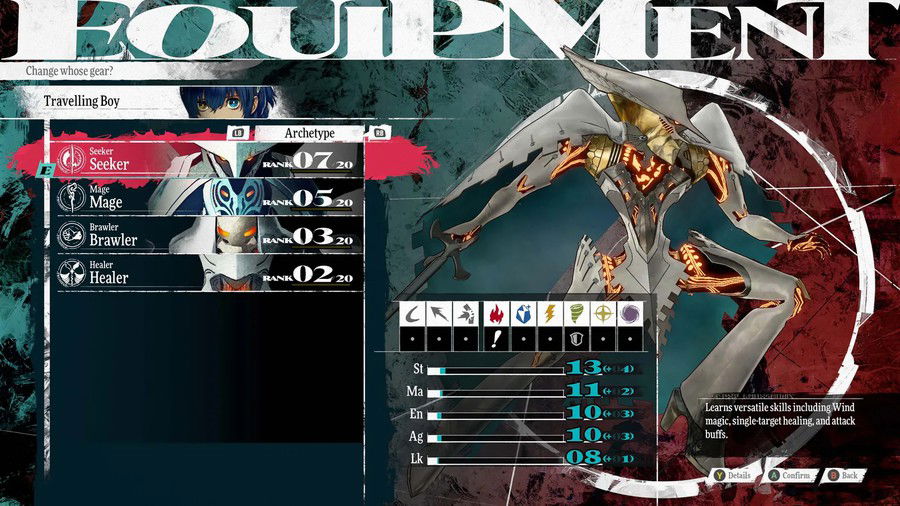
In recent years, many RPGs have offered nearly unlimited customization in combat and character building. While some maintain traditional class systems, others allow the player to transform characters into any role. Metaphor combines these two approaches, creating one of the best-executed class systems in recent times.
Archetypes are unlocked throughout the story, as the player meets new characters. Each Archetype defines base skills and stats, such as the Knight, who acts as a Tanker, or the Mage, who specializes in elemental magic. As characters level up, they can also inherit skills from other classes, without any restrictions.
In practice, this inheritance system allows you to create unique combinations, such as Tankers who use magic or healers with debuffing abilities. While the chosen Archetype defines the base stats, players have the freedom to customize characters for any role, ensuring dynamic and strategic combat.
Exploration and grand journeying improves time management
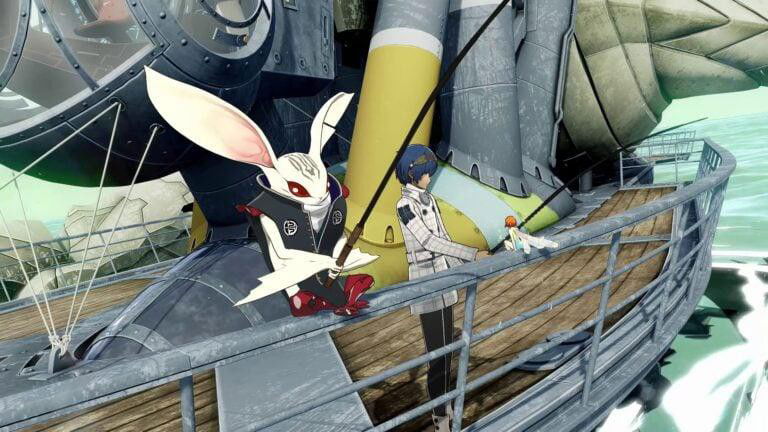
Metaphor reuses the fixed calendar cycle to control story progression and the time available for extra activities. These activities include side quests, dungeon exploration, and moments of interaction with companions, which improve relationships and grant benefits in and out of combat.
Interacting with companions is essential to evolving characters and improving combat, as many Archetypes are locked until these relationships advance. The game makes it easier to manage limited time by allowing players to use travel to interact with allies or perform activities that increase social skills, doubling the value of a single day on the calendar.
A welcome change is the streamlining of relationship progression. Unlike Persona, where afternoons must be spent on irrelevant activities to increase affinity, Metaphor only requires interaction when characters are ready to advance their stories. Sometimes, optional dungeons will need to be completed, or a trait level improved, but these requirements are clearly marked on the followers page, easily accessible at the press of a button.
Repetitive dungeon design
Exploring the continent is measured in days: traveling from a city to a cave can take anywhere from one night to three days, depending on the distance. During these trips, players can perform activities, face enemies, or even encounter secret bosses along the way.
Travels typically lead to dungeons, which are divided into three types: Jungle, Cave, and Tower. Each dungeon has its own objective, such as hunting a beast or finding a lost treasure, and it is common for side quests to involve exploring these locations.
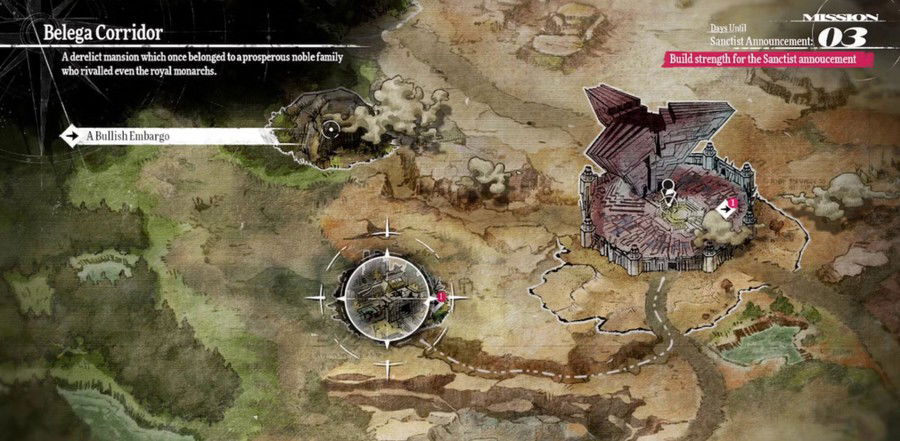
However, the dungeons are one of Metaphor's main flaws. Most have very similar designs, and few offer a relevant difference. The quests are also repeated: hunting monsters usually involves eliminating minor enemies or collecting items, while exploring caves requires finding shortcuts and hidden chests, culminating in a room protected by a boss. Towers, in turn, consist of climbing to the top to face a boss or conquer a treasure.
These activities become repetitive over time and seem almost mandatory, since Metaphor presents difficulty spikes with each chapter. If players don’t explore dungeons, they run the risk of not progressing enough and missing out on opportunities to improve other aspects of the gameplay.
All mechanics align perfectly
Side quests involve visiting smaller villages or unique landscapes, which are directly linked to the progress of the characters’ relationships. To access these locations, players must traverse dungeons. To accept quests, it is necessary to interact with NPCs or the guard, who offer hunting contracts. To face powerful monsters, players must strengthen their relationships with allies to unlock more powerful Archetypes. And to use these Archetypes, it is necessary to explore dungeons and gain experience.
Every mechanic in Metaphor is excellently integrated. None exists in isolation, making the game’s design an ideal model for RPGs, whether turn-based or real-time. The side activities are relevant, never feeling like unnecessary obligations, and they are perfectly aligned with the game’s narrative and themes.
Blurring the Lines Between Fantasy and Reality
The plot revolves around an electoral race, in which, by decree of the former king, the succession to the throne is decided by the will of the people. Any citizen can become king or queen, initiating an intense struggle to gain the trust of the people and thus become the new ruler. This process of "magical democracy" offers a unique interpretation of political succession in a fantasy world.
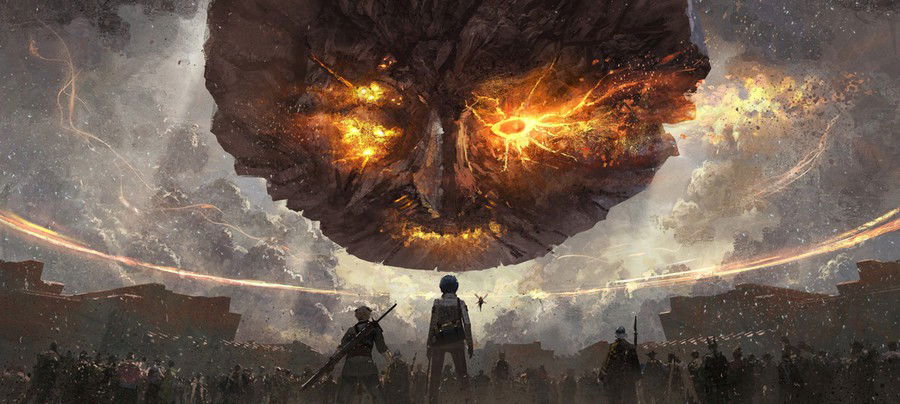
The game uses this structure to explore relevant political and social themes, such as eugenics, racism and the relationship between State and Faith. These topics act as counterpoints to the idealism of the fictional universe, highlighting the difficulties and tensions that the characters face, many of which reflect issues that echo in contemporary society - Metaphor asks the player to reflect on the construction of a "perfect world" and on the role of fantasy in shaping perceptions and aspirations in reality.
The narrative also presents a diversity of characters with divergent views on the future of the kingdom. Some defend the maintenance of traditions and the status quo, while others call for radical changes. Although the game does not explore all themes and characters in the same depth, it offers a reflection on the principles that underpin democratic choice and the power of collective will.
Pros and Cons
Pros
Cons
Score
9.2 / 10
Conclusion
Metaphor: ReFantazio is an RPG that captivates the player through the narrative, especially when it reaches its climax after immersing into its world, and keeps you hooked from start to finish. However, New Game Plus doesn't bring enough new features to justify a second playthrough with the same enthusiasm, and Atlus' signature calendar-based gameplay formula can become tiresome on a second playthrough.
Still, like Persona 5, Metaphor will establish itself as one of the best games of this generation, earning its place despite having a smaller budget than many other major releases from Triple A studios.
The game manages to balance classic Atlus elements well with subtle innovations that, while not reinventing the formula, demonstrate the studio's ability to refine its ideas and will be remembered as the best JRPG of 2024, both for its loyalty to Atlus' roots and for its improvements that should permeate future titles.
Thanks for reading!








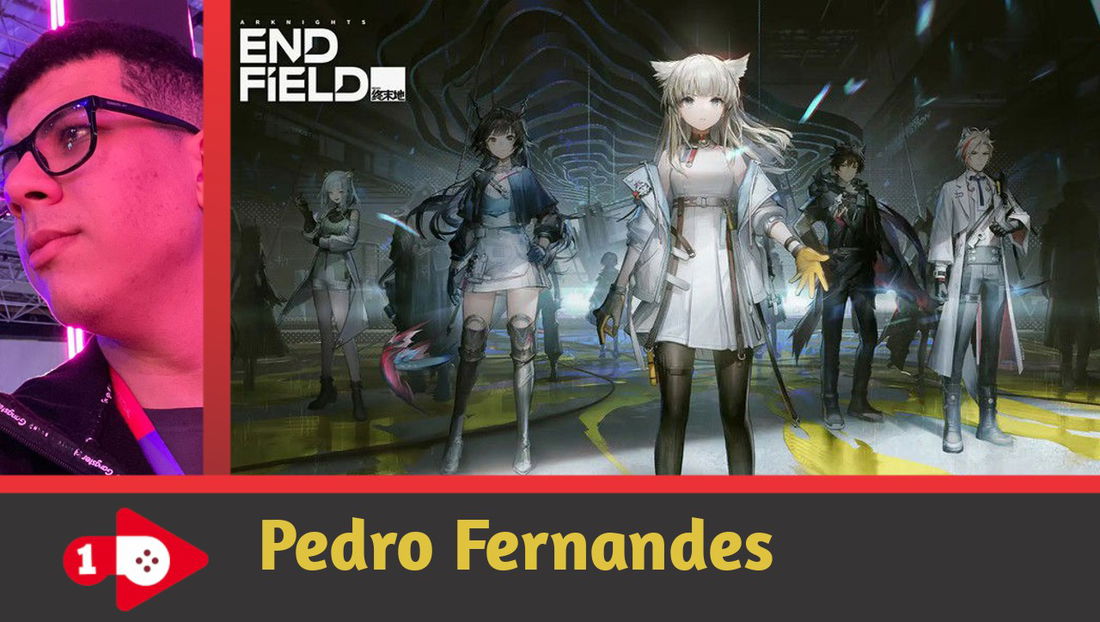



— Комментарии 0
, Реакции 1
Прокомментируйте первым